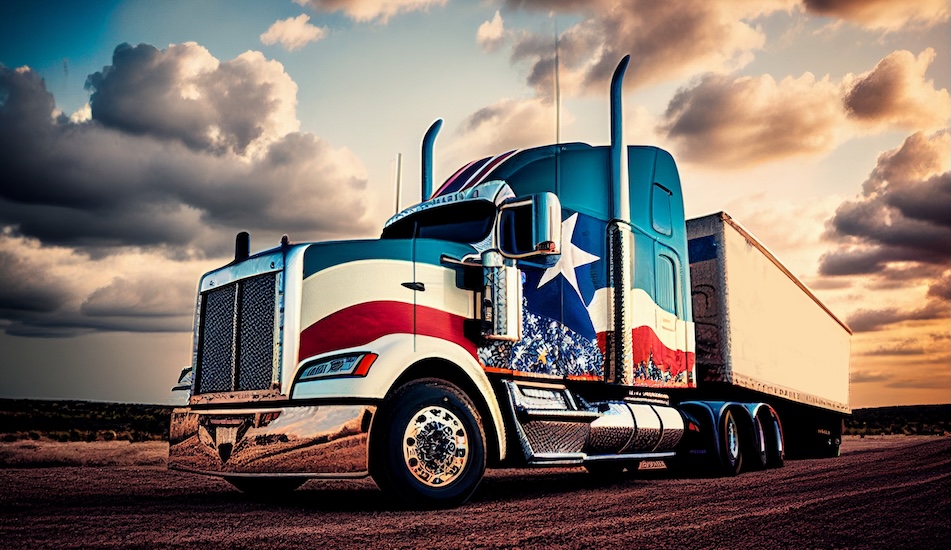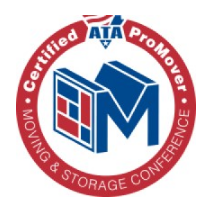Top-Rated Long Distance Movers: Finding the Best in 2024

Relocating across the country or to a new state can be a challenging prospect, filled with uncertainty and stress. The success of your long-distance move hinges on selecting a reliable and experienced moving company that can handle the details of your relocation journey.
“Equip yourself with the knowledge and tools to make an informed decision when choosing a long-distance moving company.” We’ll explore the key factors to consider, from assessing a company’s reputation and experience to understanding their range of services and pricing structures.
Gain valuable insights into the unique challenges of long-distance moves and learn effective strategies for preparation and problem-solving. Our expert tips will help you create a detailed timeline, pack your belongings efficiently, and handle any unexpected issues that may arise during the moving process.
We’ll also introduce you to some of the top-rated long-distance moving companies in the industry, comparing their strengths, weaknesses, and specialties. By understanding the unique offerings of each company, you’ll be better equipped to find the perfect fit for your specific needs and budget.
Undergoing a long-distance move signals the start of an exciting new chapter in your life, whether you’re relocating for work, family, or a fresh start. With the right moving company by your side and a solid plan in place, you can approach this transition with confidence and peace of mind.
What Is A Long-Distance Move?
Undertaking a long-distance move, also known as an interstate move, is an exciting yet challenging endeavor that involves relocating from one state to another or covering a significant distance within the same state. These moves often span hundreds of miles and require careful planning, thorough preparation, and seamless coordination compared to local moves.
Definition And Scope
The definition of a long-distance move can vary depending on the moving company and specific state regulations. Generally, a move is considered long-distance if it exceeds a certain mileage threshold, typically ranging from 100 to 400 miles.
Differences Between Local And Long-Distance Moves
Local moves, which usually occur within the same city or metropolitan area, differ from long-distance moves in several key aspects:
- Distance: Local moves cover shorter distances, usually within a 50-100 mile radius, while long-distance moves involve greater distances and often cross state lines.
- Pricing: Local moves are typically priced based on an hourly rate, considering factors such as the number of movers and the time needed to complete the move, whereas long-distance moves are priced based on the weight of the belongings, distance traveled, and additional services requested.
- Regulations: Long-distance moves are subject to federal regulations set by the Federal Motor Carrier Safety Administration (FMCSA), which oversees interstate moving companies. In contrast, local moves are regulated by state and local authorities.
- Planning and coordination: Due to the increased complexity and distance involved, long-distance moves require more extensive planning, including arranging transportation, accommodations, and utility transfers at both the origin and destination.
Typical Scenarios For Long-Distance Relocations
People undertake long-distance moves for various reasons, such as:
- Job relocation: Individuals or families may move to a different state or region for career advancement or new employment opportunities. This common scenario often prompts long-distance relocations.
- Education: Students may relocate to attend college or university in another state, necessitating a long-distance move that involves moving personal belongings and setting up a new residence in the destination state.
- Family reasons: Life events such as marriage, divorce, or caring for elderly family members may prompt a long-distance move to be closer to loved ones. These moves often require careful coordination and planning to ensure a smooth transition.
- Lifestyle changes: Some people may choose to relocate to a different state or region for a change of pace, better climate, or improved quality of life, which often involves significant preparation and adaptation to new surroundings.
- Retirement: Retirees may opt for a long-distance move to enjoy their golden years in a more desirable location or to be closer to family members. These moves may involve downsizing and require thorough planning to ensure a comfortable and fulfilling retirement lifestyle.
Factors To Consider When Choosing A Long-Distance Moving Company
Selecting the right long-distance moving company is essential for a smooth and successful relocation. To make an informed decision, let’s explore the key factors you should consider.
Reputation And Experience
Company History And Background
Explore the moving company’s history and background to gauge their industry experience and expertise. Focus on companies with a proven track record of successful long-distance moves and a strong reputation for customer satisfaction.
Customer Reviews And Ratings
Turn to trusted websites like the Better Business Bureau, Yelp, and Google to read customer reviews and ratings. Pay close attention to comments about the company’s reliability, professionalism, and customer service.
Licensing And Insurance
Verifying Proper Licensing
Ensure the long-distance moving company you choose is properly licensed and registered with the Federal Motor Carrier Safety Administration (FMCSA). Visit the FMCSA website and search for their USDOT number to verify their licensing status.
Understanding Insurance Coverage Options
Talk to the moving company about the insurance coverage options they provide to protect your belongings during transit. While most companies offer basic liability coverage, it may not be enough for high-value items, so consider purchasing additional valuation coverage or third-party insurance for added peace of mind.
Services Offered
Packing And Unpacking Assistance
Find out if the moving company offers packing and unpacking services to simplify your move. Some movers can pack for you, providing materials and expertise to ensure your belongings are safely prepared for transport.
Storage Solutions
If you need temporary storage during your long-distance move, look for a company that offers secure storage facilities. This can be a lifesaver if you need to postpone your move-in date or are downsizing and require extra space for your belongings.
Specialty Item Handling (e.g., Antiques, Pianos)
When moving specialty items like antiques, fine art, or pianos, make sure the moving company has the necessary experience and expertise to handle these delicate pieces. Ask about their packing techniques and any specialized equipment they use to transport these items safely.
Pricing And Contracts
Obtaining And Comparing Quotes
Collect quotes from multiple long-distance moving companies to compare pricing and services. Provide accurate details about your move, such as distance, volume of belongings, and any special requirements, to get a reliable estimate.
Take advantage of tools like a moving cost calculator to help calculate your moving costs and plan your budget accordingly.
Understanding Pricing Structures (Binding vs. Non-Binding)
Familiarize yourself with the different pricing structures offered by moving companies. Binding estimates provide a fixed price based on your belongings’ inventory, while non-binding estimates offer an approximate cost that may change based on your shipment’s actual weight.
Keep in mind the costs of moving trucks and any additional fees that may apply.
Reviewing Contract Terms And Conditions
Before putting pen to paper, carefully review the terms and conditions outlined by the moving company. Pay close attention to details such as pickup and delivery dates, payment terms, liability coverage, and any additional fees or charges.
If you have any questions or need clarification on any points, don’t hesitate to ask. Taking the time to thoroughly consider these factors will help you make an informed decision and choose a long-distance moving company that best suits your needs and budget.
Top-Rated Long-Distance Moving Companies
Choosing the perfect long distance movers is essential for a stress-free and smooth relocation experience. Several companies have built stellar reputations based on their outstanding services, customer satisfaction, and reliability.
Nelson Westerberg
Company Overview And Specialties
Nelson Westerberg is a well-established moving company that offers a wide range of services at competitive prices. They specialize in long-distance moves and provide a variety of options to meet unique needs.
Pros And Cons
Pros:
- Experienced and professional staff
- Competitive pricing
- Full range of services
- Excellent customer support
Cons:
- Limited availability in some areas
- Potential for longer delivery times during peak seasons
Allied Van Lines
Company Overview And Specialties
Allied Van Lines is a trusted name in the moving industry, known for their unwavering commitment to customer satisfaction and service excellence. They offer a variety of services designed to meet individual needs.
Pros And Cons
Pros:
- Nationwide network of agents
- Customizable moving packages
- Specialized services for fragile items
- Excellent customer reviews
Cons:
- Higher pricing compared to some competitors
- Some reports of inconsistent service quality between agents
American Van Lines
Company Overview And Specialties
American Van Lines has built a reputation for reliability and affordability, making them a popular choice for long-distance relocations. They offer a variety of services designed to cater to specific needs and budgets.
Pros And Cons
Pros:
- Affordable pricing
- Reliable and efficient service
- Experienced and professional movers
- Good customer support
Cons:
- Limited service area compared to some competitors
- Some reports of minor damage during moves
United Van Lines
Company Overview And Specialties
United Van Lines is a well-established company recognized for their high-quality service and careful attention to detail. They specialize in long-distance moves and provide various services to ensure a seamless relocation experience.
Pros And Cons
Pros:
- Extensive network of agents nationwide
- Customizable moving packages
- Specialized services for high-value items
- Excellent customer reviews
Cons:
- Higher pricing compared to some competitors
- Some reports of delays during peak moving seasons
North American Van Lines
Company Overview And Specialties
North American Van Lines is a trusted provider of long-distance moving services, prioritizing customer satisfaction and quality at every step. They offer a range of services to accommodate unique needs and preferences.
Pros And Cons
Pros:
- Nationwide network of agents
- Customizable moving packages
- Specialized services for high-value items
- Good customer support
Cons:
- Higher pricing compared to some competitors
- Some reports of inconsistent service quality between agents
When selecting a long-distance moving company, it’s crucial to carefully evaluate your specific requirements, budget, and expectations.
Investing time in thoroughly researching each company, reading customer reviews, and obtaining detailed quotes is essential for making an informed decision that best suits your individual needs.
Preparing For Your Long-Distance Move
Undertaking a long-distance move can be a significant endeavor, but with careful planning and preparation, you can ensure a smooth and stress-free experience. By following these essential steps, you’ll be well-equipped for your upcoming relocation.
Creating A Moving Checklist And Timeline
The key to a successful long-distance move is staying organized. Start by creating a detailed moving checklist that covers all the tasks you need to finish before, during, and after your move, such as finding a reliable moving company, packing your possessions, and informing key contacts about your new address.
Assign realistic deadlines to each task and prioritize them based on their importance and urgency. This approach will help you stay on track and ensure that nothing is overlooked during the moving process.
Decluttering And Downsizing
Before diving into the packing process, seize the opportunity to declutter and downsize your belongings. Moving presents the perfect chance to let go of items you no longer need or use, ultimately saving you time, money, and effort in the long run.
To tackle the decluttering process effectively, go through your possessions room by room and sort them into three categories: keep, donate, and discard. Consider selling valuable items you no longer need and donate gently used items to local charities or thrift stores, giving them a second life while lightening your load.
Packing Tips And Techniques
Efficient packing is paramount for a successful long-distance move. Start by gathering all the necessary packing materials, such as sturdy boxes, packing paper, bubble wrap, and reliable tape.
Begin packing non-essential items well in advance of your move date and gradually work your way up to more essential items as the date approaches.
To ensure your belongings are protected during transit, label each box clearly with its contents and the room it belongs to, and maintain a detailed inventory list to help you keep track of your possessions.
Notifying Important Parties Of Your Move
Don’t forget to notify important parties of your upcoming move, such as your employer, schools, banks, and utility providers. Update your address with the post office and arrange for mail forwarding to ensure you don’t miss any critical correspondence.
Keep your friends and family informed by sharing your new address and contact information. Consider sending out moving announcements to ensure everyone is aware of your exciting new chapter and can stay connected with you in your new location.
Navigating Challenges During A Long-Distance Move
Even with careful planning and preparation, long-distance moves can present various challenges. To ensure a smooth transition, it’s crucial to have strategies in place for handling unexpected delays, maintaining effective communication with your moving company, and managing stress throughout the process.
Handling Unexpected Delays Or Issues
Unforeseen circumstances such as inclement weather or vehicle breakdowns can lead to delays during a long-distance move.
To minimize the impact of these potential setbacks, it’s wise to build flexibility into your moving timeline and have contingency plans at the ready.
Should issues arise, maintain close contact with your moving company and be prepared to adapt your plans as needed. Rather than dwelling on the problem, focus on finding solutions in a calm and professional manner.
Communicating Effectively With Your Moving Company
Open and clear communication with your moving company is essential for a successful long-distance move. Before the move, take the time to thoroughly understand their policies, procedures, and expectations.
As the move progresses, stay in regular contact with your moving crew and keep them informed of any changes or special requests. If any issues arise, address them promptly and professionally to find a mutually agreeable solution.
Managing Stress And Emotions Throughout The Process
Long-distance moves can be emotionally challenging, as they often involve leaving behind familiar places, people, and routines. Acknowledge your feelings and take proactive steps to manage stress during this time.
Consider setting aside time for self-care activities such as exercise, meditation, or spending quality time with loved ones. Stay organized and focus on the positive aspects of your move, such as the new opportunities and experiences that await you in your new location.
Remember, it’s perfectly normal to experience a mix of emotions during a long-distance move. Don’t hesitate to reach out for support from friends, family, or professionals if you find yourself in need of additional guidance or encouragement.
Frequently Asked Questions
- What is the cheapest way to move long-distance?
If you’re on a tight budget, renting a moving truck and handling the packing and driving yourself is often the most cost-effective option for a long-distance move. Keep in mind that this approach does require a significant investment of your time and energy.
For those seeking a balance between cost and convenience, consider hiring moving labor to assist with loading and unloading while you handle the transportation yourself. This can help alleviate some of the physical strain while still keeping costs lower than hiring a full-service moving company.
- How far in advance should I book a long-distance moving company?
To secure your preferred moving date and allow ample time for planning and preparation, it’s recommended to book your long-distance moving company at least 4-8 weeks in advance.
This is particularly important if you’re moving during the peak season, which typically spans from May to September, as demand for moving services is higher during these months.
- Are there any items that long-distance movers won’t transport?
Long-distance movers generally have restrictions on transporting certain items, such as hazardous materials, flammable substances, explosives, corrosives, and perishable food items. Some movers may have policies against moving high-value items like jewelry, cash, or important documents.
To ensure a smooth and compliant move, it’s always best to discuss any concerns or specific items with your moving company beforehand. They can provide guidance on how to properly pack and transport these items or suggest alternative solutions.
- What should I do if something gets damaged during the move?
If you discover any damaged items during or after your move, the first crucial step is to notify your moving company immediately. Document the damage thoroughly with detailed descriptions and photographs to support your claim.
Carefully review your moving contract and insurance coverage to familiarize yourself with the claims process and any deadlines for reporting damages. File a claim with the moving company as soon as possible to begin the resolution process and ensure you’re fairly compensated for any losses.
- How can I ensure my belongings are secure during a long-distance move?
Start by choosing a reputable moving company with proper licensing and insurance to ensure the security of your belongings during a long-distance move. For added peace of mind, consider purchasing additional insurance coverage for valuable items.
Take the time to properly pack and label your boxes, creating a detailed inventory list to keep track of your possessions throughout the moving process. This will help you quickly identify any missing or damaged items and streamline the claims process if necessary.
Conclusion
Choosing the right long-distance moving company is one of the most important decisions you’ll make during your relocation journey. By thoroughly evaluating potential movers based on their reputation, services, pricing, and insurance coverage, you can find a reliable partner to safely transport your belongings to your new home.
Arm yourself with the knowledge and strategies needed to select a long-distance moving company that fits your unique needs and budget. Taking the time to properly prepare, plan, and communicate with your chosen movers can help minimize the challenges and uncertainties of a long-distance move, resulting in a smoother and more organized experience for you and your family.
Investing effort in finding the ideal moving company and preparing for your long-distance relocation pays off in the form of reduced stress, increased efficiency, and the peace of mind that comes with knowing your possessions are in good hands. Revised Sentence: Embrace the excitement of this new chapter in your life, and use these insights to turn your long-distance move into a resounding success.
Related Articles
Where to Move from Texas: Top 10 States for Ex-Texans in 2025

Where to Move from Texas: Top 10 States for Ex-Texans in 2025 Record numbers of Texans are exploring life beyond state lines, driven by soaring housing costs, evolving career landscapes, and the search for new lifestyle opportunities. The decision to leave Texas stirs intense emotions – after all, the Lone Star State‘s unique culture and […]
Read MoreHow to Move a House from One Location to Another: Planning to Completion

Relocating an entire house might seem like something out of a movie, but this remarkable feat of engineering happens more often than you’d think. From preserving historic mansions to saving beloved family homes from coastal erosion, house moving represents the intersection of cutting-edge engineering and practical problem-solving. With project costs typically ranging from $18,000 to […]
Read More




